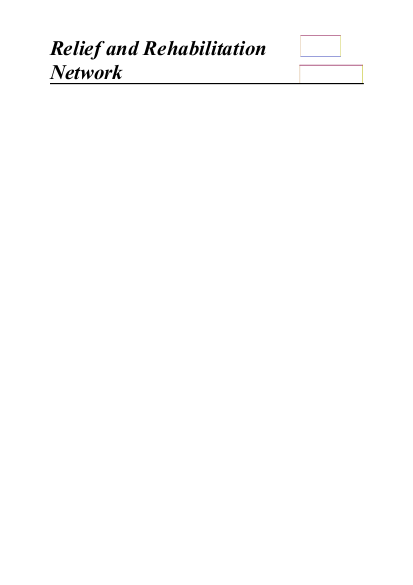A Data Collecting System Focused on Food Security and Population Movements

During the 1991-1992 rain season, Southern Africa experienced a widespread
drought judged to be the most severe of the previous 50 years and possibly of this
century. In Mozambique, the drought overlaid and exacerbated the existing chronic
emergency situation caused by the ongoing civil war between the Government
(FRELIMO) and RENAMO. The war which had begun shortly after independence
in 1975 resulted in massive population displacements both internally and as refugees
into neighbouring countries, the destruction of economic, administrative and social
welfare infrastructure (bridges, factories, health facilities and schools), attacks on
overland transport forcing the use of escorted convoys or air transport between
FRELIMO-controlled areas and disrupting normal trading activity(1). The
Emergency Appeal launched by the Government of Mozambique in Paris in May
1992 set the number of people in need of relief food at 3.1 million of which 1.8
million were judged to be `war affected' and 1.3 million `drought affected'. The total
population of the country at the time was estimated at 16.2 million, of which 1.5
million were refugees in neighbouring countries.
